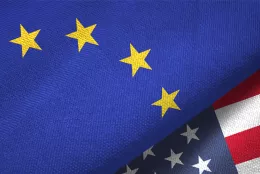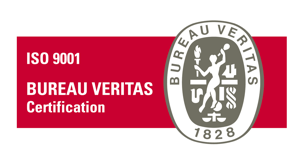Article

The latest amendments to the German Patent Act
Injunctions: reducing the gap and the hardship - 31 months for German phase entry
The German legislator has recently decided to adapt the German Patent Act. The corresponding bill on the simplification and modernisation of patent law entered into force on August 18, 2021. Some of the most notable revisions are detailed below.
No injunction in case of hardship
Previously, under §139 of the German Patent Act, an injunction against an infringer was automatic. If the infringement was proven, the court had to grant the injunction, irrespective of the particulars of the case.
In recent years, this automatism has come under attack, in particular in patent infringement cases involving complex products, where the grant of an injunction based on a patent on a small component of the product could be particularly damaging to the alleged infringer.
To address this, §139 of the German Patent Act now stipulates that:
“The injunction is excluded insofar as it would lead to disproportionate hardship for the infringer or third parties not justified by the exclusive right due to the special circumstances of the individual case and the requirements of good faith. In this case, the infringed party shall be granted appropriate compensation in money. The claim for damages according to paragraph 2 shall remain unaffected.”
Accordingly, from now on, the German courts may refuse an injunction in case of “disproportionate hardship for the infringer”. There seems to be a consensus among experts that this new remedy should only apply in very exceptional cases.
However, it is possible that, in future, defendants will regularly invoke it in an attempt to avoid an injunction.
It remains to be seen how the German courts will implement this new provision.
German nullity actions – Reducing the injunction gap
Germany is one of the few countries where patents are litigated in parallel at two different courts: at the district court to assess patent infringement, and at the federal patent court to decide on the patent’s validity.
This has led to the so-called “injunction gap”. The injunction gap is a consequence of the time lag between the infringement and the nullity proceedings: the German district courts are much quicker in deciding on infringement than the federal patent court in deciding on validity.
The injunction gap can be a serious problem for an alleged infringer who may face a situation where they must comply with a cease-and-desist order handed down by the district court while the patent’s validity is still being scrutinised by the federal patent court.
To mitigate this problem, the German Patent Act now provides for shorter deadlines in the nullity proceedings at the federal patent court. From now on:
- the patentee must submit his full reply to the nullity action within two months of its notification;
- the federal patent court should provide its preliminary opinion within six months to the parties and to the district court dealing with the infringement. This six-month deadline is however not mandatory.
Critics argue that this tighter regime will not do much to reduce the injunction gap. They contend that the real problem is a lack of resources at the federal patent court. A few even suggest abandoning the German bifurcation system and creating a new unified court that would rule on infringement and nullity at the same time.
The future will tell whether the current reform will suffice to significantly reduce the injunction gap, or failing that, whether more radical solutions will be adopted by the legislator.
Deadline to enter German phase of Patent Cooperation Treaty (PCT) application extended from 30 to 31 months
As of May 1st, 2022, the deadline for entering the national German phase of a PCT application will be extended to 31 months from the application’s effective date. This will bring the German Patent system more into line with the European patent system with its well-established 31-month deadline.
Pundits argue that this new measure falls short of what is really needed to make the German national phase more attractive: the option to file the German translation after phase entry, and the possibility to reduce claims fees upon phase entry by filing appropriate claim amendments.
Could this be the subject matter of yet another reform in the next future? To be continued…
Patent annuities increase as of 01.07.2022
The maintenance fees for German Patents will increase as of July 1st, 2022. The increase relates to all annuities except for the 3rd and 4th annuity and amounts to around 10 to 15%.
Accordingly, to substantially save costs, patent owners with large German Patent portfolios might consider paying their annuities for 2022 in advance.
Hearings and oral proceedings by videoconference
As of May 1st, 2022, applicants will have the option to attend oral hearings at the German Patent Office via videoconferencing tools. This is welcome in view of the current recurring restrictions to curb the global pandemic. Preparations to set up videoconferencing are still ongoing, and we will inform you about any progress as soon as possible.
Conclusion
The recent reform does indeed improve the German Patent system to a certain extent. However, further desirable changes, such as utility model eligibility for method inventions, are still outstanding. We will keep you apprised of further developments.
Meanwhile, Plasseraud IP Patents Team is available to support you in making the most out of the new legal provisions, e.g., regarding national phase entry in Germany or annuity payments in advance of the fee increase.























